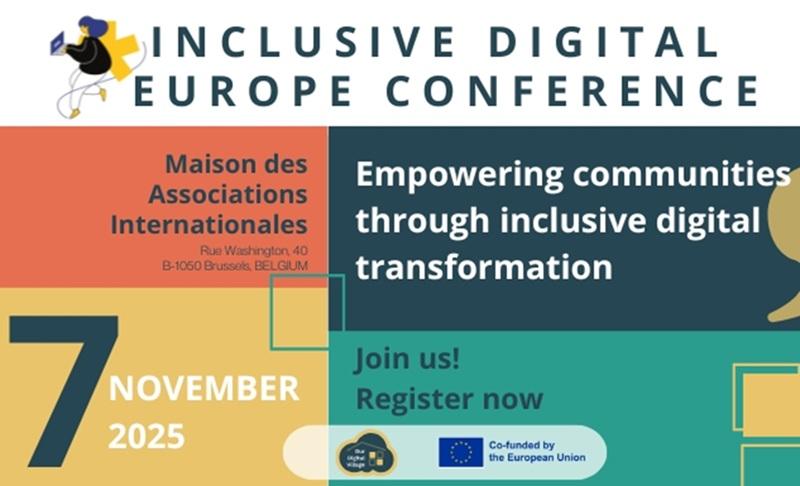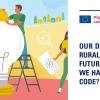The 2025 Inclusive Digital Europe Conference: Empowering Communities through Inclusive Digital Transformation

Digitalisation brings new opportunities for education, innovation, and participation, but it also risks deepening divides between urban and rural areas. Many rural communities continue to face barriers - from limited infrastructure and connectivity or a need for tailored digital education and skills training. These not only affect access to services and opportunities but also challenge social cohesion and equal participation in the digital decade.
The 2025 Inclusive Digital Europe Conference, Empowering Communities through Inclusive Digital Transformation, responded to this challenge by creating a space for dialogue between educators, policymakers, local authorities, civil society organisations, and community leaders. The conference highlighted how digital skills and inclusive strategies can empower rural communities, reduce inequalities, and ensure that no one is left behind in Europe’s digital future.
Opening the morning sessions, MEP Brando Benifei gave inspiring pre-recorded remarks and Mr. Csaba Borboly, CoR member and rapporteur on the European Skills Agenda, set the tone with a keynote address entitled The Future of Digital Education in Rural Communities. He emphasized that “access is more than Wi-Fi”, highlighting the need for trust, relevance, and community-driven approaches: the best learning environments are often existing spaces that people already trust, reinforcing that digital transformation should empower, not expose, people.
The session on Building a Digital Village showcased the Our Digital Village Project, uniting partners from nine EU countries. Coordinator Alberto Biondo from CSC Danilo Dolci - ETS drew inspiration from activist Danilo Dolci’s philosophy of nonviolent social change, framing digital inclusion as a participatory, community-based process. Dr. Rosabel Martínez Roig from the University of Alicante highlighted evaluation as a learning process, stressing the shift from merely using digital tools to teaching and creating with them.
An interesting panel, What’s Next for Digital Skills in Rural Europe? brought together Milena Nahapetyan from the Council of Europe, Anja Fortuna of the European Rural Parliament, Leonie Bultynck from the European Commission (DG EAC), and Denys Tkachov discussed greater recognition of non-formal education and the transformation of user to co-creators, the particularly significant role that AI can have in rural education - and therefore the urgent need for ethical frameworks around AI use in classrooms. Participants were reminded that AI should assist like an electric bike: enhancing, not replacing, human action.
Christos Bousoulas presented European Schoolnet's Small and Rural Interest Group and its Smart schooling and networking: Empowering small and rural schools MOOC, and it was noted that the SELFIE for Teachers tool could play an important role in digital education and training of teachers in rural areas.
At the end of a long, fruitful day, interactive roundtables energized participants with co-creating practical solutions for digital skills development, rural innovation, bridging the urban–rural divide, and contemplating what the future may hold for digital Europe.
The conference closed with reflections on sustainability and future pathways, reaffirming a shared vision: Europe’s digital transformation must strengthen communities, foster inclusion, and ensure that rural learners can thrive in the digital age.




